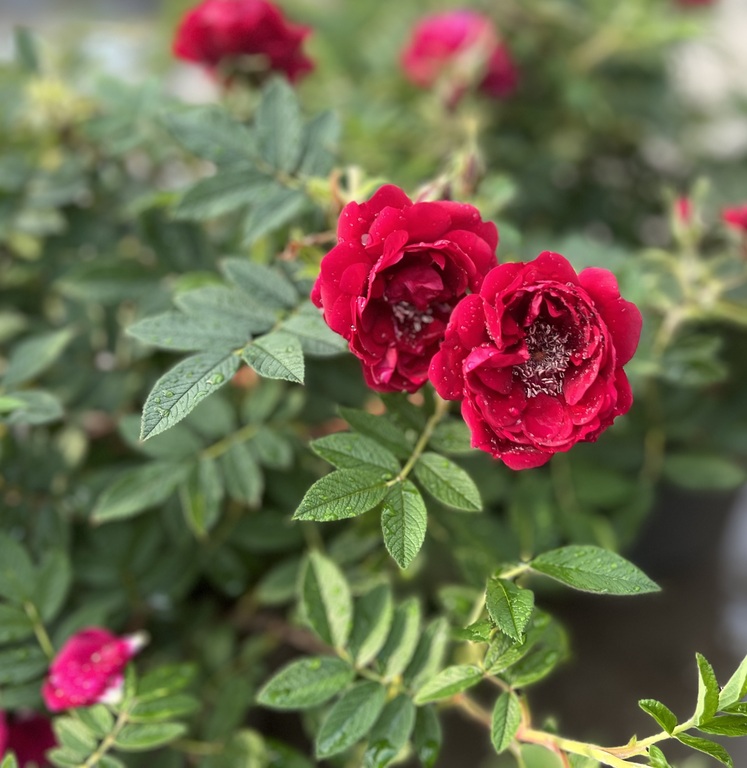.jpg)
One trend is quickly rising to the forefront: the demand for plants that provide added value. Today’s customers aren’t just looking for beautiful plants—they’re seeking varieties with tangible benefits, from health-supportive fruits to multifunctional uses in home gardens. Whether they incorporate edible greenery, promote the development of food forests, or provide habitat and food for wildlife, added-value plants are quickly becoming a must-have for retailers and growers. This article explores top picks for growers and retailers to meet this demand.
Why added-value plants are gaining popularity
Health consciousness, sustainability goals, and the push for self-sufficiency drive the desire for added-value plants. More customers want edible landscapes, plants that provide health benefits, and multi-functional greenery that aligns with the increasing interest in food forests—a trend where edible and medicinal plants are interwoven to create an ecosystem benefiting both humans and wildlife. For the knowledgeable grower and retailer, offering plants that deliver more than just ornamental appeal is an opportunity to satisfy this unique market segment.
Top added-value plant varieties for growers and retailers
These varieties, from rose hips to goji berries, meet the market demand for enriched gardens that nourish, sustain, and inspire.
1. Rosa Take It Easy
This hardy rose variety produces large, colourful rose hips that are decorative and edible. They are packed with vitamin C and are often used in teas, jams, and even skincare. Besides its ornamental appeal, Take It Easy rose’s hips can be harvested in the fall, creating an added harvest for health-conscious customers. This rose is a dual-purpose plant—beautiful in bloom and beneficial for those looking to add an easy-to-grow source of vitamin-rich rose hips to their edible landscape.

2. Rubus Yummy
Rubus Yummy is a compact, thornless raspberry bush that produces sweet berries, perfect for container gardening or small spaces. This dwarf raspberry is excellent for urban gardeners or those with limited space, allowing them to grow fresh, antioxidant-rich raspberries on their patio or balcony. Yummy is a space-efficient edible plant that fits easily into container gardens, making it an appealing option for customers wanting fresh berries without the need for sprawling berry bushes.
Rubus Yummy is a compact, thornless raspberry bush that produces sweet berries, perfect for container gardening or small spaces. This dwarf raspberry is excellent for urban gardeners or those with limited space, allowing them to grow fresh, antioxidant-rich raspberries on their patio or balcony. Yummy is a space-efficient edible plant that fits easily into container gardens, making it an appealing option for customers wanting fresh berries without the need for sprawling berry bushes.
3. Morus Mojo Berry
Morus Mojo Berry is a mulberry variety that produces sweet berries throughout the season. It attracts birds and offers delicious, nutritious fruit for humans. This smaller mulberry variety provides loads of edible berries high in vitamin. It appeals to those who want to enjoy fresh mulberries without a large tree. Mojo Berry is a low-maintenance fruiting option that’s wildlife-friendly, creating habitat and food for birds while also serving as a source of seasonal snacks for the whole family.
Morus Mojo Berry is a mulberry variety that produces sweet berries throughout the season. It attracts birds and offers delicious, nutritious fruit for humans. This smaller mulberry variety provides loads of edible berries high in vitamin. It appeals to those who want to enjoy fresh mulberries without a large tree. Mojo Berry is a low-maintenance fruiting option that’s wildlife-friendly, creating habitat and food for birds while also serving as a source of seasonal snacks for the whole family.
4. Lycium Princess Tao and Lycium Little Goji
These Lycium varieties are gorgeous goji berry plants that produce vibrant red berries rich in antioxidants, vitamins, and minerals. Goji berries are considered a superfood with health benefits, appealing to customers who want to grow their nutrient-dense food right at home. These varieties are also versatile in both containers and garden beds. These goji plants are the perfect addition for health-focused gardeners looking to grow their own superfoods, especially since goji berries have well-known immune-boosting properties.
These Lycium varieties are gorgeous goji berry plants that produce vibrant red berries rich in antioxidants, vitamins, and minerals. Goji berries are considered a superfood with health benefits, appealing to customers who want to grow their nutrient-dense food right at home. These varieties are also versatile in both containers and garden beds. These goji plants are the perfect addition for health-focused gardeners looking to grow their own superfoods, especially since goji berries have well-known immune-boosting properties.
5. Rubus Raspberry Tower
Raspberry Tower is an upright, space-saving raspberry plant that produces delicious red berries. This variety is ideal for urban gardeners and those with limited space, as it grows vertically rather than spreading, making it perfect for patio or balcony gardens. Raspberry Tower is a practical option for small spaces that doesn’t compromise on fruit production, appealing to gardeners who want fresh raspberries without a sprawling patch.
Raspberry Tower is an upright, space-saving raspberry plant that produces delicious red berries. This variety is ideal for urban gardeners and those with limited space, as it grows vertically rather than spreading, making it perfect for patio or balcony gardens. Raspberry Tower is a practical option for small spaces that doesn’t compromise on fruit production, appealing to gardeners who want fresh raspberries without a sprawling patch.
Final thoughts
For growers and retailers in the green industry, the rise of added-value plants offers a prime opportunity to engage a growing market of health-conscious, eco-minded consumers. By offering plants that provide more than just aesthetic appeal, you can cater to customers who seek edible and health-supportive benefits from their greenery. These added-value plants allow your customers to embrace multifunctional gardening, contributing to sustainability and self-sufficiency while creating an attractive and productive landscape.

